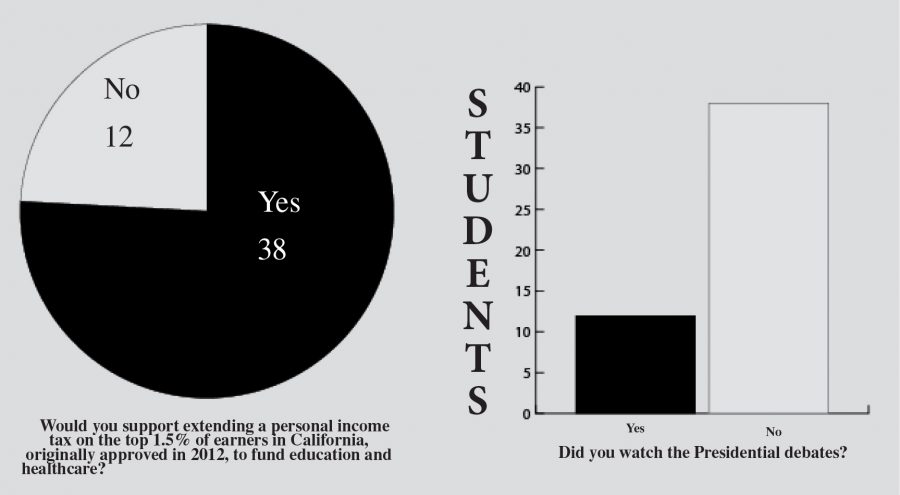Prop 55 attempts to extend taxes
October 5, 2016
In 2012, Californians were in rough times. The state was facing a budget that proposed $5.5 billion in education cuts as a result of the recession, and a historic attempt by Gov. Jerry Brown to balance the budget – an effort in which he succeeded. These cuts would have to be across the board, threatening layoffs, tuition hikes, and less instructional time. Governor Brown had a solution to this looming danger though, Proposition 30.
This proposition raised taxes on the top 1.5% of earning Californians through 2019, in an effort to entirely remedy the cuts proposed by the governor. Though it faced organized opposition, with the advocacy of Gov. Brown and the endorsement of California teachers, the measure passed 55% to 45%, and a disaster was avoided. This was particularly remarkable considering Californians had rejected the last 8 tax increases proposed.
Central to the narrative surrounding the passage of Proposition 30 was that these taxes would be temporary, lasting only until 2019. Now, the same forces that organized behind Prop 30, have placed on the ballot a new initiative, Proposition 55, looking to extend the Proposition 30 tax rates approved in 2012 through 2030. The measure would not extend the quarter-cent sales tax approved in Prop 30, allowing it to expire in 2016.
Though this measure doesn’t propose any new taxes, there is some organized opposition to the extension. The Kersten Institute for Governance and Public Policy is running a campaign in opposition, and the San Francisco Chronicle recommended voters reject the measure. While the former argues that business may “flee” if the measure is approved, destroying jobs in the process, the latter argues this form of funding for our schools is “too unstable,” and that those assets the state has become reliant on could “vaporize” in the next recession, leaving our schools vulnerable.
Proponents of the measure, including the California Federation of Teachers and the California Teachers Association, argue our education system is not ready to lose that funding, citing a projected $4 billion cut next year if the measure isn’t approved. Not only would our education system be cut, but the state budget surplus we have now would be turned into a deficit, they say.






